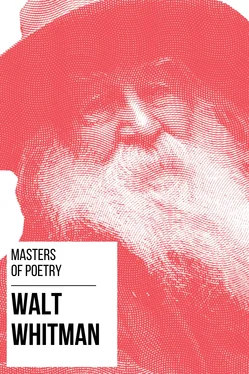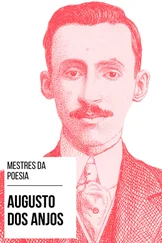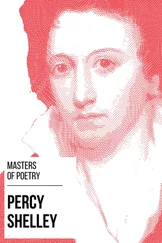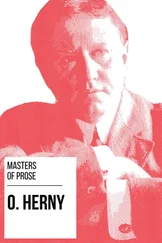The shadow of Whitman's self-reliance and heroic self-esteem—the sort of eddy or back-water—was undoubtedly a childlike fondness for praise and for seeing his name in print. In his relaxed moments, when the stress of his task was not upon him, he was indeed in many respects a child. He had a child's delight in his own picture. He enjoyed hearing himself lauded as Colonel Ingersoll lauded him in his lecture in Philadelphia, and as his friends lauded him at his birthday dinner parties during the last two or three years of his life; he loved to see his name in print, and items about himself in the newspapers; he sometimes wrote them himself and gave them to the reporters. And yet nothing is surer than that he shaped his life and did his work absolutely indifferent to either praise or blame; in fact, that he deliberately did that which he knew would bring him dispraise. The candor and openness of the man's nature would not allow him to conceal or feign anything. If he loved praise, why should he not be frank about it? Did he not lay claim to the vices and vanities of men also? At its worst, Whitman's vanity was but the foible of a great nature, and should count for but little in the final estimate. The common human nature to which he lay claim will assert itself; it is not always to be kept up to the heroic pitch.
It was difficult to appreciate his liking for the newspaper. But he had been a newspaper man himself; the printer's ink had struck in; he had many associations with the press-room and the composing-room; he loved the common, democratic character of the newspaper; it was the average man's library. The homely uses to which it was put, and the humble firesides to which it found its way, endeared it to him, and made him love to see his name in it.
Whitman's vanity was of the innocent, good-natured kind. He was as tolerant of your criticism as of your praise. Selfishness, in any unworthy sense, he had none. Offensive arrogance and self-assertion, in his life there was none.
His egotism is of the large generous species that never irritates or pricks into you like that of the merely conceited man. His love, his candor, his sympathy are on an equal scale.
His egotism comes finally to affect one like the independence and indifference of natural law. It takes little heed of our opinion, whether it be for or against, and keeps to its own way whatever befall.
Whitman's absolute faith in himself was a part of his faith in creation. He felt himself so keenly a part of the whole that he shared its soundness and excellence; he must be good as it is good.
Whitman showed just enough intention, or premeditation in his life, dress, manners, attitudes in his pictures, self-portrayals in his poems, etc., to give rise to the charge that he was a poseur . He was a poseur in the sense, and to the extent, that any man is a poseur who tries to live up to a certain ideal and to realize it in his outward daily life. It is clear that he early formed the habit of self-contemplation and of standing apart and looking upon himself as another person. Hence his extraordinary self-knowledge, and, we may also say, his extraordinary self-appreciation, or to use his own words, "the quite changed attitude of the ego, the one chanting or talking, towards himself." Of course there is danger in this attitude, but Whitman was large enough and strong enough to escape it. He saw himself to be the typical inevitable democrat that others have seen him to be, and with perfect candor and without ever forcing the note, he portrays himself as such. As his work is confessedly the poem of himself, himself magnified and projected, as it were, upon the canvas of a great age and country, all his traits and qualities stand out in heroic proportions, his pride and egotism as well as his love and tolerance.
"How beautiful is candor," he says. "All faults may be forgiven of him who has perfect candor." The last thing that could ever be charged of Whitman is that he lacked openness, or was guilty of any deceit or concealments in his life or works.
From the studies, notes, and scrap-books which Whitman left, it appears that he was long preparing and disciplining himself for the work he had in view. "The long foreground," to which Emerson referred in his letter, was of course a reality. But this self-consciousness and self-adjustment to a given end is an element of strength and not of weakness.
In the famous vestless and coatless portrait of himself prefixed to the first "Leaves of Grass" he assumes an attitude and is in a sense a poseur ; but the reader comes finally to wonder at the marvelous self-knowledge the picture displays, and how strictly typical it is of the poet's mental and spiritual attitude towards the world,—independent, unconventional, audacious, yet inquiring and sympathetic in a wonderful degree. In the same way he posed in other portraits. A favorite with him is the one in which he sits contemplating a butterfly upon his forefinger—typical of a man "preoccupied of his own soul." In another he peers out curiously as from behind a mask. In an earlier one he stands, hat in hand, in marked negligé costume,—a little too intentional, one feels. The contempt of the polished ones is probably very strong within him at this time. I say contempt, though I doubt if Whitman ever felt contempt for any human being.
Then Whitman had a curious habit of standing apart, as it were, and looking upon himself and his career as of some other person. He was interested in his own cause, and took a hand in the discussion. From first to last he had the habit of regarding himself objectively. On his deathbed he seemed to be a spectator of his own last moments, and was seen to feel his pulse a few minutes before he breathed his last.
He has recorded this trait in his poems:—
"Apart from the pulling and hauling stands what I am,
Stands amused, complacent, compassionate, idle, waiting,
Looking with side-curved head curious what will come next,
Both in and out of the game and watching and wondering at it."
As also in this from "Calamus:"—
"That shadow my likeness that goes to and fro seeking a livelihood, chattering, chaffering,
How often I find myself standing and looking at it where it flits,
How often I question and doubt whether that is really me;
But among my lovers, and caroling these songs,
Oh, I never doubt whether that is really me."
Whitman always speaks as one having authority and not as a scribe, not as a mere man of letters. This is the privilege of the divine egoism of the prophet.
Like the utterances of the biblical writers, without argument, without elaboration, his mere dictum seems the word of fate. It is not the voice of a man who has made his way through the world by rejecting and denying, but by accepting all and rising superior. What the "push of reading" or the push of argument could not start is often started and clinched by his mere authoritative "I say."
"I say where liberty draws not the blood out of slavery, there slavery draws the blood out of liberty,"...
"I say the human shape or face is so great it must never be made ridiculous;
I say for ornaments nothing outré can be allowed,
And that anything is most beautiful without ornament,
And that exaggerations will be sternly revenged in your own physiology and in other persons' physiologies also.
"Think of the past;
I warn you that in a little while others will find their past in you and your times....
Think of spiritual results.
Sure as the earth swims through the heavens, does every one of its objects pass into spiritual results.
Think of manhood, and you to be a man;
Читать дальше












